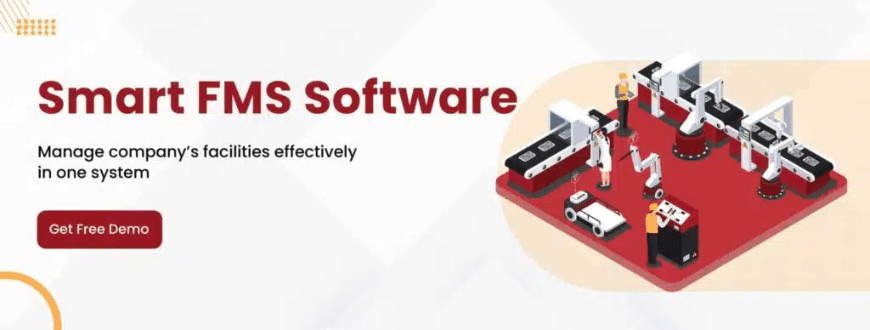Assets are used by companies to assist their business operational processes. Assets, including tangible assets and intangible assets, refer to the economic resource that is held or controlled by a particular entity, such as a company. The management of shareholders’ equity and the metric known as the return on equity ratio both rely heavily on asset valuations. With that in mind, asset management can be tricky. Therefore, you can use the best facility management system from HashMicro that will help you in managing and tracking your assets.
There are two types of assets which are tangible and intangible assets. Tangible assets are the properties that can be physically held in one’s hands. While intangible assets are resources that don’t have a physical presence. This includes copyrights, goodwill, trademarks, and more. Using facility management software will help you maintain these assets and ensure the condition regarding the assets. This will benefit the company in minimizing the chances of asset theft or damaged assets with its tracking system. Now, take a look at the pricing scheme calculation for facility management software for your consideration.
Table of Content:
Table of Content
What is a Tangible Asset?
Assets that are considered tangible typically take the form of physical objects and have a specific monetary worth. These are tangible components of a company’s activities that it is able to get its hands on and put to use. These resources are crucial to the effectiveness of commercial organizations. Tangible assets are recorded on the balance sheet as current or fixed assets. This means that they have a useful life lasting more than one year and they will continue to generate income after they have been purchased.
Types and Examples of Tangible Assets
There are a few types of tangible assets. To manage and maintain these assets, you can consider using facility management software that will automate all of the processes. Now, we are going to see the types and examples of these assets.
Equipment
When a manufacturing company produces goods, the equipment you use are tangible asset. This covers any aspect of the production line that workers physically contact throughout the process of preparing the product, manufacturing the product, assembling the product, or performing quality control.
Inventory
Since tangible assets are assets that you can touch physically, many inventories are considered tangible assets. You may sum up the entire manufacturing process in terms of tangible inventory assets. This starts with the raw materials that have been sourced and goes on to the commodities that are in the process of being manufactured by the company.
Furnish
Resources that can be handled and engaged with, which encompasses practically every facet of a workplace. In a company’s office, everything that you can see is considerably tangible assets, such as computers, office desks, and other furniture.
Buildings
Buildings and other structures are frequently the type of tangible asset that is the largest and most noticeable. This includes offices, warehouses, industrial plants, and many more. Every office that already exists is a concrete asset. The enhancements made to that building are frequently considered to be tangible assets as well.
Land
Land is a tangible asset regardless of whether it is being held for speculative growth, future redevelopment, or the plans for the site’s longer-term use are not yet known. This is equally true for all different kinds of land. This goes against the trend toward the emergence of digital plots of ownership on metaverse systems.
Also read: The Role of Facility Management System
How Can Companies Value Their Tangible Asset?
There are three basic approaches that you can take to determine the value of a tangible asset. It is determined by the asset’s characteristics, including its location and condition. Let’s go through the three approaches.
Particular assessment
Companies often hire an independent appraiser to determine the worth of their tangible assets. Whenever an appraisal is complete, the appraiser will typically issue a report detailing their findings. However, even a specialist can miscalculate a thing that leads to errors. To minimize these errors, you can use facility management software from HashMicro. The software will automate the management of your assets and give detailed reports regarding the costs of keeping assets in great condition.
Cost of replacement
The third approach to value is one that insurance companies utilize most frequently as a component of an insurance policy. When figuring out how much a facility is actually worth, insurers typically base their calculations on its cost of replacement. Thus, the insurance company will structure the policy so that in the event that there is a claim, the claimant may get money to replace their asset, but this does not necessarily mean that they will receive reimbursement for the item’s true full worth.
Cost of liquidation
The price at which a tangible item could be sold if it were to be put up for auction is the best indicator of its value. Regardless of the findings of an independent assessment, a firm might only consider a tangible asset to be worth as much as they are currently able to get for it. The appraised value will frequently be lower than the liquidation price. There are typically significant charges that a company will have to factor into the price of the liquidation. Also, there are some tangible things that aren’t easily convertible into cash and can be difficult to relocate.
Also read: What is an Asset Management System? Its Benefits & Features
Tangible Asset’s Drawbacks
Some people believe that investing in tangible assets makes more sense in certain types of economic climates. However, there are also risks you should consider. Think about the possibility that the building will become obsolete in the near future. For instance, during the pandemic where workforces are working remotely and the buildings are not being used. Some other disadvantages are:
- It could become irrelevant when there are more cutting-edge tangible assets
- These assets are prone to damage due to nature or human error
- There are risks of assets thief because it is easy to access
- Frequently results in the incurring of additional costs in order to store, handle, and preserve products
Also read: The Benefits of Facility Management System for Any Facility Manager
Conclusion
A tangible asset refers to the asset that you can touch physically. Like any other assets, companies are using tangible assets to assist their operational process. We have gone through the types, examples, and drawbacks of owning tangible assets. Now that you know the essentials regarding tangible assets, you may want to use the best facility management system or asset management software from HashMicro to help you maintain your assets.
Managing and maintaining assets are essential, especially the easily accessed tangible assets. You want to have the best management and protection towards the assets. Hence, implementing a facility management system for your company is needed to prevent things such as theft or damaged assets. Before that, if you want to try a free demo, you can apply here.

























































